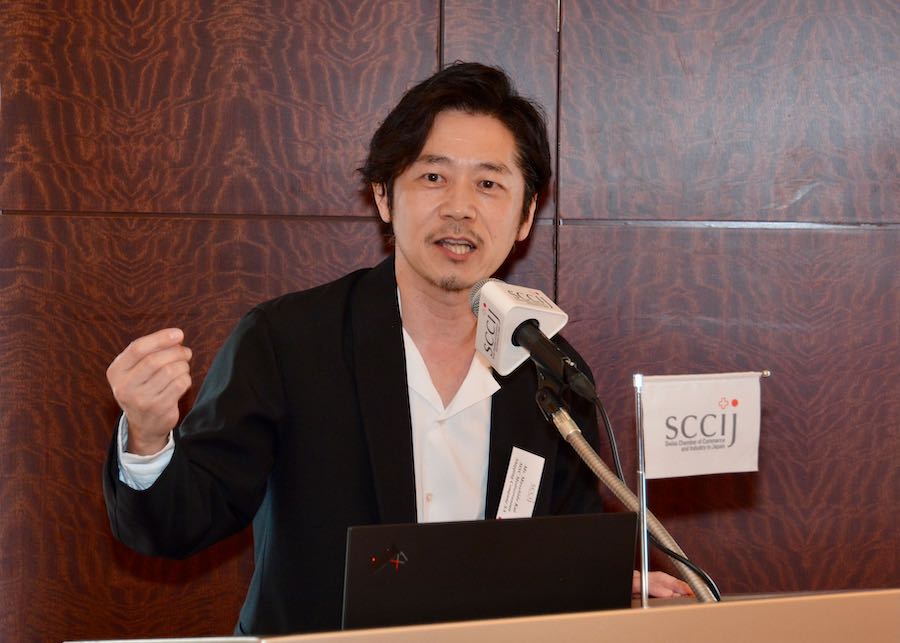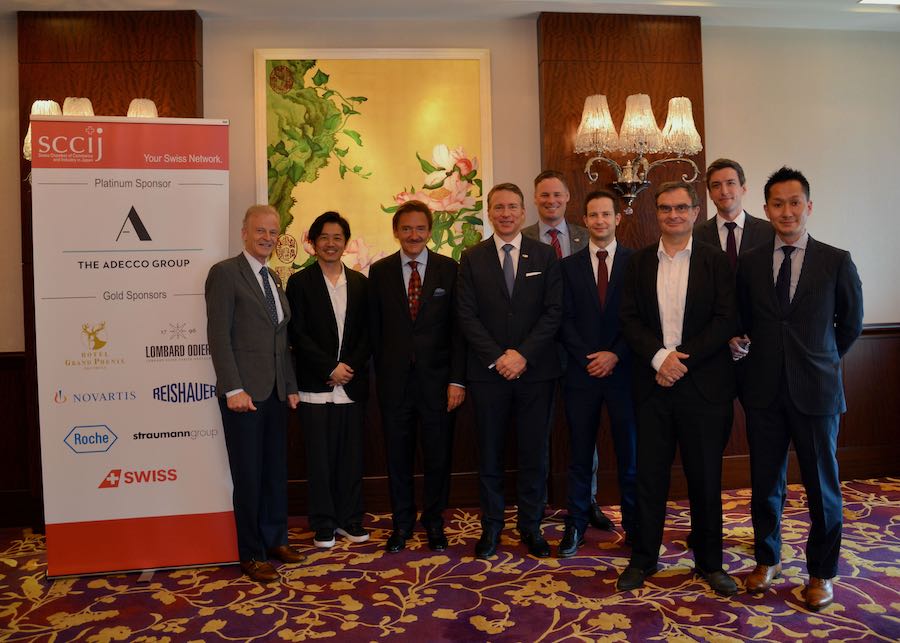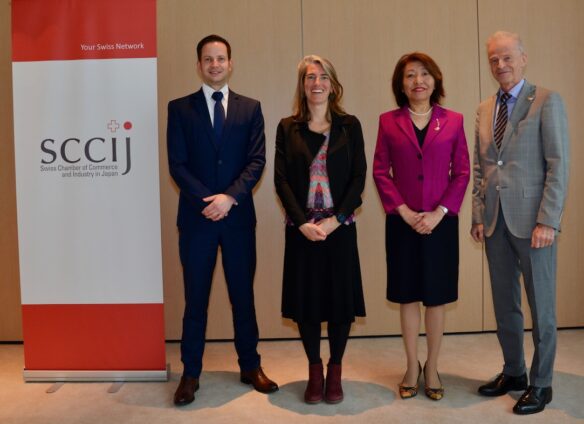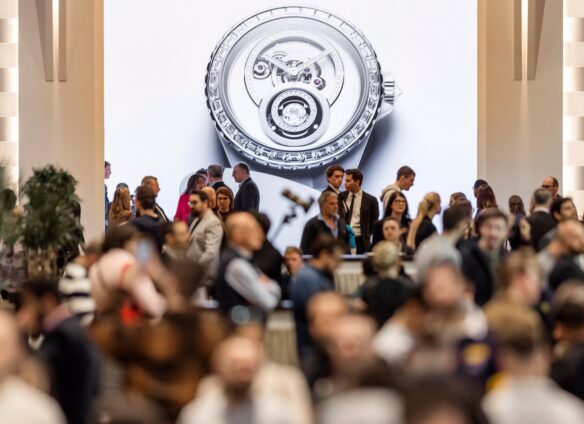Tokyo (SCCIJ) – The COVID pandemic caused supply chain disruptions in different parts of the world. In particular, businesses are suffering from a logistics crunch, and maritime transportation of cargo takes longer and costs more. At the May Luncheon with 40 members and guests of the SCCIJ, Mr. Masahide Kai, Managing Director of MSC Mediterranean Shipping Company Japan, explained the reasons behind the crunch. We share his views with you in a Q&A format.

SCCIJ May Luncheon speaker Mr. Masahide Kai is Managing Director of MSC Mediterranean Shipping Company in Japan.
Mr. Kai, why has transporting cargo in containers become so expensive?
Masahide Kai: Indeed, market freight rates are now at a level that we have not seen for many years, due to the dynamics of demand and supply. This is largely because we are still facing supply chain challenges that were triggered by the COVID pandemic. This includes issues brought about due to lack of terminal and landside infrastructure, port congestion around the world, and shortage of labor, inland transportation, and warehousing. At the same time, the pandemic has also led to spikes in demand, especially in the US where we continue to see strong demand for imports.
Viewed from the perspective of a container shipping company, where are the roots of the current logistical problems?
Masahide Kai: The pandemic has led to huge swings in demand and supply, and since 2020, demand for goods in major markets like the US has been very strong. This has led to a multitude of interconnected supply chain problems for the industry. Many large ports are heavily congested by the sudden spike in trade volumes. A shortage of port workers and truckers has aggravated the problem. Delays in loading and unloading of ships at ports have also led to longer turnaround times and hence a shortage of containers globally.
How have these developments affected your business?
Masahide Kai: The supply chain crunch has created a huge strain on container carriers and impacted their operations. For example, at the height of the supply chain disruption, MSC had injected an extra ship for each round-trip service on certain major trades to accommodate not only the increase in demand for trade in goods but the inefficiency of carrying cargo between congested ports.

Members and advisors of the SCCIJ Executive Committee, Honorary Chairman Ambassador Dr. Andreas Baum (third from left), and luncheon speaker Mr. Masahide Kai of MSC Japan (second from left).
What has your company MSC been doing to overcome the logistics crunch?
Masahide Kai: At MSC, we have been continuing to invest in ships and new services to help clients tackle global supply chain disruption. We have increased our ocean fleet capacity by around 20% and started 12 new mainline services since 2019. We have been engaging with customers and seeking a constructive dialogue to find the best solutions available. We have also been diversifying the portfolio of available ports to alleviate some of the pressure from the more congested areas, rerouting cargo through other gateways, adding terminals, and diversifying inland with the railroads in some countries.
How important are such investments to end the current crisis?
Masahide Kai: While MSC and other carriers have introduced measures operationally to try their best to cope with the ongoing supply chain crunch. But other issues for example related to a shortage of terminal and landside infrastructure, inland transportation, and warehousing are not easy to resolve quickly and will take time. According to the Organization for Economic Co-operation and Development (OECD), around 90% of traded goods are carried by sea. As such, the oceans provide the main transport arteries for global trade. Container shipping is the backbone of the global transportation industry, and it is the most energy and cost-efficient mode of transporting goods.
What can companies reliant on goods delivery do to improve the situation?
Masahide Kai: I’d like to highlight that logistics supply chains are very long and consist of shippers, carriers, ports, truckers, container owners, warehouse owners, and retailers. Each player can play a part in easing the ongoing supply chain issues. For example, shippers can help by returning containers as quickly as possible. They can also consider using other types or sizes of containers, as long as it is fitting for their products. This would help to reduce the global equipment shortage issue.
Biography of the Speaker
Mr. Masahide Kai has been working in MSC since 1999, when it first established its business presence in Japan, having previously worked for a year with another shipping line. He has a wealth of experience gained from working in different departments such as sales and trade management and was subsequently promoted to the role of Country Manager in 2010. Mr. Kai graduated from Waseda University and earned a Bachelor’s degree in Commerce and Business.
Text and photos: Martin Fritz for SCCIJ





























